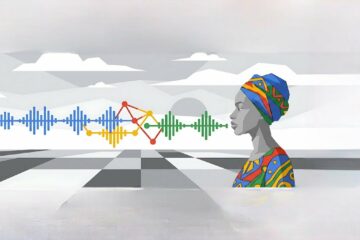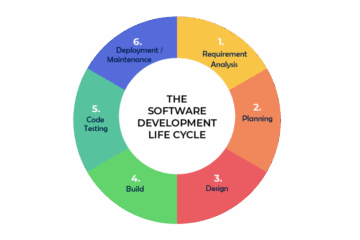Marvin Minsky, the cognitive scientist and co-founder of the MIT artificial intelligence laboratory, used to say, “You don’t really understand something if you only understand it one way.” This is especially important to remember if you’re trying to understand potential of information technology, one of the most powerful amplifiers for human endeavors in history.
Many books have been written about the Internet and other emerging technologies as a force for good. In a gripping new book, Mike Dover is depressingly thorough at showing us that the Internet’s capacity for good is matched only by its capacity to empower evil.
In Dante’s Infinite Monkeys: Technology Meets The Seven Deadly Sins, Dover writes about how “the Internet, and technology in general, have provided new ways for wrath, lust, gluttony, sloth, pride, envy, and greed to insert themselves into our lives.” He dives deeply into the worst of humanity that technology can serve up.

In this interview, Dover and I discuss how technology is amplifying evil—and the implications for consumers, inventors, innovators and policy makers.
Chunka Mui: Why write a book about evil?
Mike Dover: I’ve spent a significant part of my career working at a think tank that mostly studied the impact of technology on business and society. Generally our sponsors were interested in how they could leverage technology to improve profits or in the case of governments how to improve life for citizens. While our clients were interested in dangers and pitfalls, most of what we produced focused on the positives.
This project gave me some balance and license to really dig into the dark stuff.
Mui: Your book offers compelling evidence that bad actors are harnessing technology to commit every deadly sin. From a personal standpoint, what dangers that could directly affect you and your loved ones worry you the most?
Dover: Greed will directly impact regular people in the developed world. The division between rich and poor will grow as more jobs get automated. Even with a guaranteed minimum income, a society with a small trillionaire elite and a massive underclass will be devastating to our idea of society. In the case that a guaranteed income, emboldened by laboratory created protein, inexpensive 3-D printed goods and rich immersive entertainment made life carefree, many people in our society require a vocation to feel useful.
Mui: What do you do to safeguard yourselves against those dangers?
Dover: A combination of things: Look for work that is less susceptible to robot replacement and constantly retrain and reinvent yourself. Also, build parts of your identity that are not reliant on your profession. Write poetry, even if it is bad poetry.
Mui: You write that technological change can alter ethics and morality. Give us examples of things that we might consider “evil” today but acceptable in the future.
Dover: I point out in the book (although I am far from the first person to address it) that sexuality drives technological innovation. Beta was a better format than VHS but the latter thrived because it embraced pornography. Same deal with video steaming, online payments, etc.
Sex with robots enhanced with AI and customized pharmaceuticals will be viewed as recreation rather than perversion.
Mui: Some evils, however, are inherently evil. From a long-term, societal standpoint, what keeps you up at night?
[Source:-FORBES]



